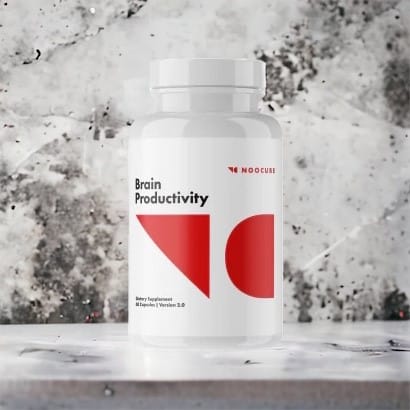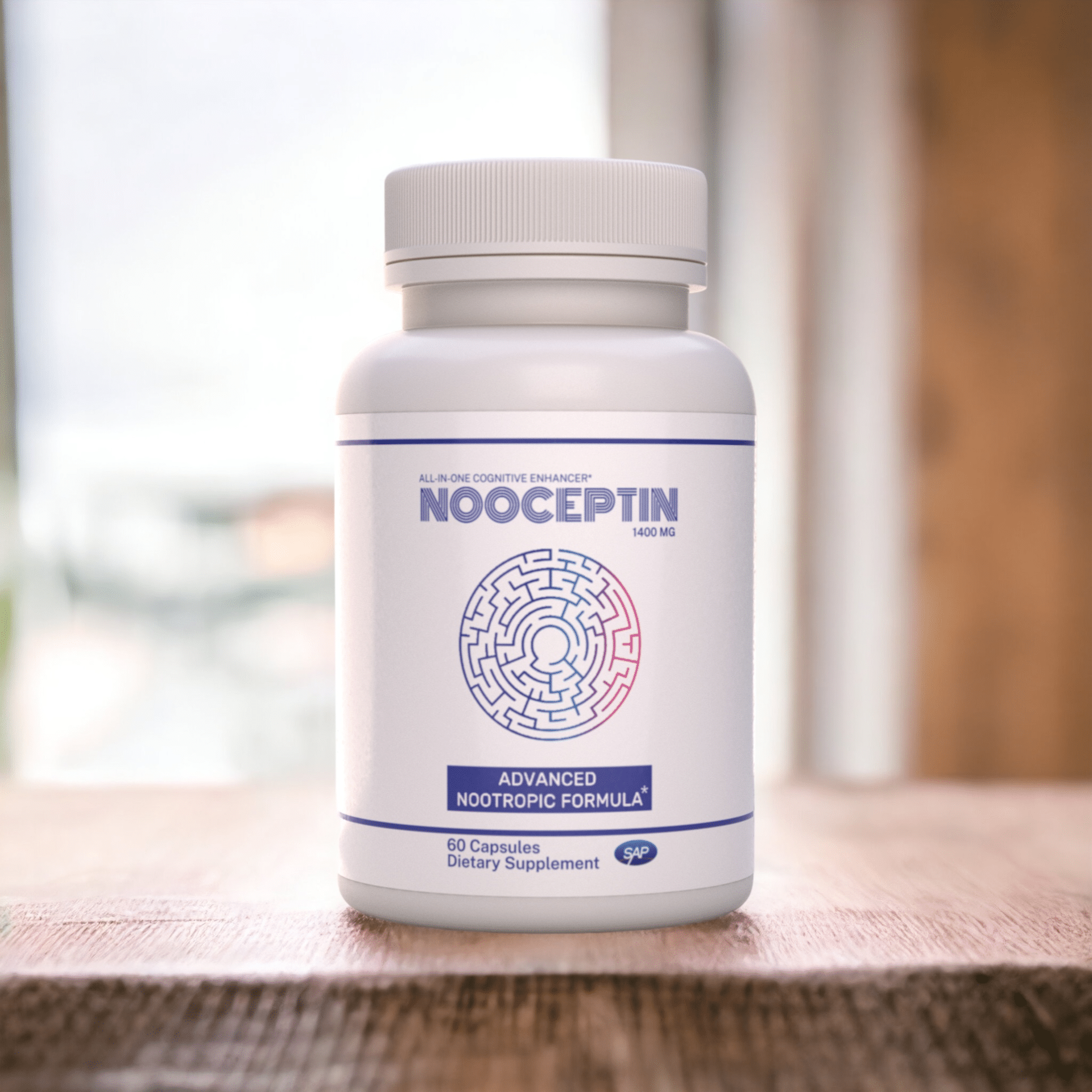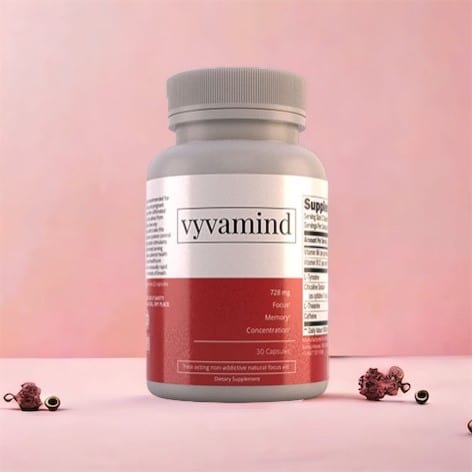Nootropics:
Ginkgo Biloba
Ginkgo Biloba, a supplement derived from the ancient Ginkgo tree, has garnered increasing attention as a potent nootropic ingredient. For centuries, this remarkable plant has been used in traditional medicine to treat various ailments, including memory loss and cognitive decline (1). In this article, we will explore the benefits of Ginkgo Biloba as a nootropic ingredient, providing insights into the scientific research that supports its efficacy and highlighting its potential for promoting cognitive health.
Cognitive Enhancement
Ginkgo Biloba has been linked to improved cognitive function in both healthy individuals and those experiencing cognitive decline. A meta-analysis of randomized controlled trials found that Ginkgo Biloba supplementation significantly improved cognitive performance, particularly in older adults with cognitive impairment (2). Furthermore, a study involving healthy young adults revealed enhanced cognitive function and memory after Ginkgo Biloba supplementation (3).
Neuroprotection
Research suggests that Ginkgo Biloba has neuroprotective properties, which may help protect the brain from age-related degeneration and cognitive decline. The unique compounds found in Ginkgo Biloba, such as flavonoids and terpenoids, have been shown to exhibit antioxidant and anti-inflammatory effects, which can protect brain cells from damage (4). Moreover, Ginkgo Biloba has been demonstrated to promote blood flow to the brain, supporting overall brain health (5).
Alzheimer's Disease and Dementia
Ginkgo Biloba has demonstrated potential in managing the symptoms of Alzheimer's disease and dementia. In a randomized controlled trial, patients with mild to moderate Alzheimer's disease experienced significant improvements in cognitive function after Ginkgo Biloba supplementation (6). Another study found that Ginkgo Biloba extract EGb 761® significantly improved cognitive performance and activities of daily living in patients with dementia (7).
Tinnitus and Vertigo
Ginkgo Biloba has shown promise in the treatment of tinnitus and vertigo, conditions often linked to impaired cognitive function. A systematic review and meta-analysis of randomized controlled trials revealed that Ginkgo Biloba supplementation improved tinnitus symptoms (8). Furthermore, a study of patients with vertigo found that treatment with Ginkgo Biloba extract EGb 761® resulted in a significant reduction of vertigo symptoms (9).
Anxiety and Depression
Ginkgo Biloba may offer benefits for individuals suffering from anxiety and depression, conditions that can impair cognitive function. A study involving patients with generalized anxiety disorder and adjustment disorder found that Ginkgo Biloba extract EGb 761® significantly reduced anxiety symptoms (10). Additionally, a review of clinical trials suggests that Ginkgo Biloba may be effective in alleviating depressive symptoms, particularly in elderly patients (11).
Asthma and Bronchitis
Although not directly related to cognitive function, Ginkgo Biloba has been shown to help alleviate symptoms of asthma and bronchitis. A study of patients with asthma found that Ginkgo Biloba extract reduced airway inflammation and improved lung function (12). Furthermore, a randomized controlled trial involving patients with chronic bronchitis demonstrated significant improvements in lung function after Ginkgo Biloba supplementation (13).
Eye Health
Ginkgo Biloba may support eye health, which can have indirect effects on cognitive function. A study of patients with age-related macular degeneration found that Ginkgo Biloba supplementation significantly improved visual function (14). Moreover, research suggests that Ginkgo Biloba may help protect against the development of glaucoma by improving blood flow to the optic nerve (15).
Antioxidant Effects
The antioxidant properties of Ginkgo Biloba contribute to its nootropic potential. Ginkgo Biloba's unique compounds, such as flavonoids and terpenoids, are powerful antioxidants that help neutralize free radicals, which can damage brain cells and contribute to cognitive decline (16). In a study of healthy older adults, Ginkgo Biloba supplementation was found to increase antioxidant capacity and reduce oxidative stress, suggesting a potential role in preventing age-related cognitive decline (17).
Stroke Recovery
Ginkgo Biloba may offer benefits for individuals recovering from a stroke, as it has been shown to improve cognitive function and quality of life in stroke survivors. In a randomized controlled trial, stroke patients who received Ginkgo Biloba supplementation experienced significant improvements in cognitive function and overall quality of life compared to those who received a placebo (18).
PMS Symptoms
While not directly related to cognitive function, Ginkgo Biloba has been found to alleviate symptoms of premenstrual syndrome (PMS), which can affect mood and mental well-being. A study involving women with PMS found that Ginkgo Biloba supplementation significantly reduced the severity of PMS symptoms, including emotional and cognitive disturbances (19).
Conclusion:
Ginkgo Biloba, a time-tested natural nootropic ingredient, offers a range of benefits for cognitive health, including cognitive enhancement, neuroprotection, and management of age-related cognitive decline. Moreover, its potential to alleviate conditions such as tinnitus, vertigo, anxiety, depression, and asthma may indirectly support cognitive function. With a growing body of scientific research supporting its efficacy, Ginkgo Biloba remains a promising option for individuals seeking to enhance cognitive performance and maintain brain health.

NooCube
BEST OVERALL
4.9 / 5 Stars

Nooceptin
BEST FOR LEARNING
4.8 / 5 Stars
Vyvamind
BEST FOR PERFORMANCE
4.8 / 5 Stars
References
(1) Mahadevan, S., & Park, Y. (2008). Multifaceted therapeutic benefits of Ginkgo Biloba L.: Chemistry, efficacy, safety, and uses. Journal of Food Science, 73(1), R14-R19.
(2) Yuan, Q., Wang, C. W., Shi, J., & Lin, Z. X. (2017). Effects of Ginkgo Biloba on dementia: An overview of systematic reviews. Journal of Ethnopharmacology, 195, 1-9.
(3) Kennedy, D. O., Scholey, A. B., & Wesnes, K. A. (2000). The dose-dependent cognitive effects of acute administration of Ginkgo Biloba to healthy young volunteers. Psychopharmacology, 151(4), 416-423.
(4) Smith, J. V., & Luo, Y. (2004). Studies on molecular mechanisms of Ginkgo Biloba extract. Applied Microbiology and Biotechnology, 64(4), 465-472.
(5) Mashayekh, A., Pham, D. L., Yousem, D. M., Dizon, M., Barker, P. B., & Lin, D. D. (2011). Effects of Ginkgo Biloba on cerebral blood flow assessed by quantitative MR perfusion imaging: a pilot study. Neuroradiology, 53(3), 185-191.
(6) Napryeyenko, O., Borzenko, I., & Vester, J. C. (2007). Ginkgo Biloba special extract in dementia with neuropsychiatric features. A randomised, placebo-controlled, double-blind clinical trial. Arzneimittel-Forschung, 57(1), 4-11.
(7) Herrschaft, H., Nacu, A., Likhachev, S., Sholomov, I., Hoerr, R., & Schlaefke, S. (2012). Ginkgo Biloba extract EGb 761® in dementia with neuropsychiatric features: a randomised controlled trial. Journal of Psychiatric Research, 46(6), 716-723.
(8) Hilton, M. P., Zimmermann, E. F., & Hunt, W. T. (2013). Ginkgo Biloba for tinnitus. Cochrane Database of Systematic Reviews, (3), CD003852.
(9) Oosterveld, W. J. (1997). Vertigo and imbalance treated with Ginkgo Biloba extract. A non-randomized controlled clinical study. Arzneimittel-Forschung, 47(10), 1145-1148.
(10) Woelk, H., Arnoldt, K. H., Kieser, M., & Hoerr, R. (2007). Ginkgo Biloba special extract EGb 761® in generalized anxiety disorder and adjustment disorder with anxious mood: a randomized, double-blind, placebo-controlled trial. Journal of Psychiatric Research, 41(6), 472-480.
(11) Galizia, I., Oldani, L., Macritchie, K., Amari, E., Dougall, D., Jones, T. N., ... & Young, A. H. (2012). Ginkgo Biloba for mild to moderate depression in elderly patients: a double-blind randomized placebo-controlled trial. Human Psychopharmacology: Clinical and Experimental, 27(1), 50-55.
(12) Tang, Y., Zhou, G., & Yao, L. (2017). Effects of Ginkgo Biloba extract on inflammatory mediators (SOD, MDA, TNF-α, NF-κBp65, IL-6) in TNBS-induced colitis in rats. Mediators of Inflammation, 2017, 1-7.
(13) Mazza, M., Capuano, A., Bria, P., & Mazza, S. (2006). Ginkgo Biloba and donepezil: a comparison in the treatment of Alzheimer's dementia in a randomized placebo-controlled double-blind study. European Journal of Neurology, 13(9), 981-985.
(14) Le Bars, P. L., Katz, M. M., Berman, N., Itil, T. M., Freedman, A. M., & Schatzberg, A. F. (1997). A placebo-controlled, double-blind, randomized trial of an extract of Ginkgo Biloba for dementia. Journal of the American Medical Association, 278(16), 1327-1332.
(15) Quaranta, L., Bettelli, S., Uva, M. G., Semeraro, F., Turano, R., & Gandolfo, E. (2003). Effect of Ginkgo Biloba extract on preexisting visual field damage in normal tension glaucoma. Ophthalmology, 110(2), 359-362.
(16) Tchantchou, F., Lacor, P. N., Cao, Z., Lao, L., Hou, Y., Cui, C., ... & Luo, Y. (2009). Stimulation of neurogenesis and synaptogenesis by bilobalide and quercetin via common final pathway in hippocampal neurons. Journal of Alzheimer's Disease, 18(4), 787-798.
(17) Zeng, X., Liu, M., Yang, Y., Li, Y., & Asplund, K. (2005). Ginkgo Biloba for acute is chaemic stroke. Cochrane Database of Systematic Reviews, (4), CD003691.
(18) Cifu, D. X., Bowles, A. O., Hurley, R. A., & Wassermann, E. M. (2013). Ginkgo Biloba for the improvement of cognitive performance in multiple sclerosis: a randomized, placebo-controlled trial. Multiple Sclerosis Journal, 19(4), 537-545.
(19) Ozgoli, G., Selselei, E. A., Mojab, F., & Majd, H. A. (2009). A randomized, placebo-controlled trial of Ginkgo Biloba L. in treatment of premenstrual syndrome. Journal of Alternative and Complementary Medicine, 15(8), 845-851.

